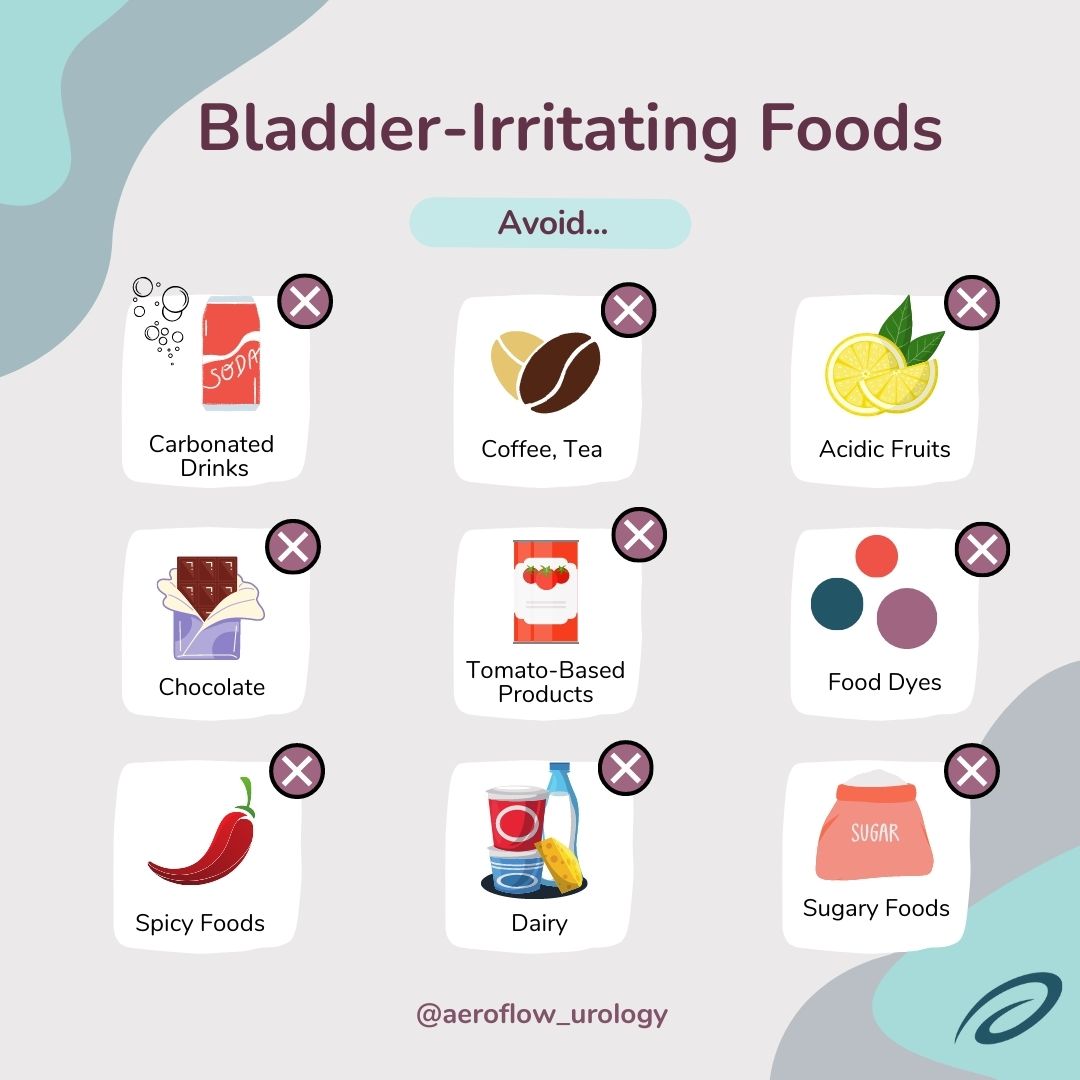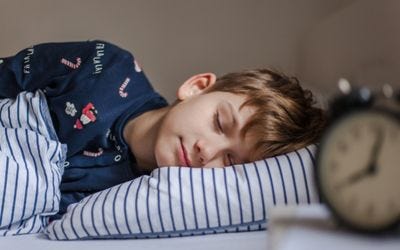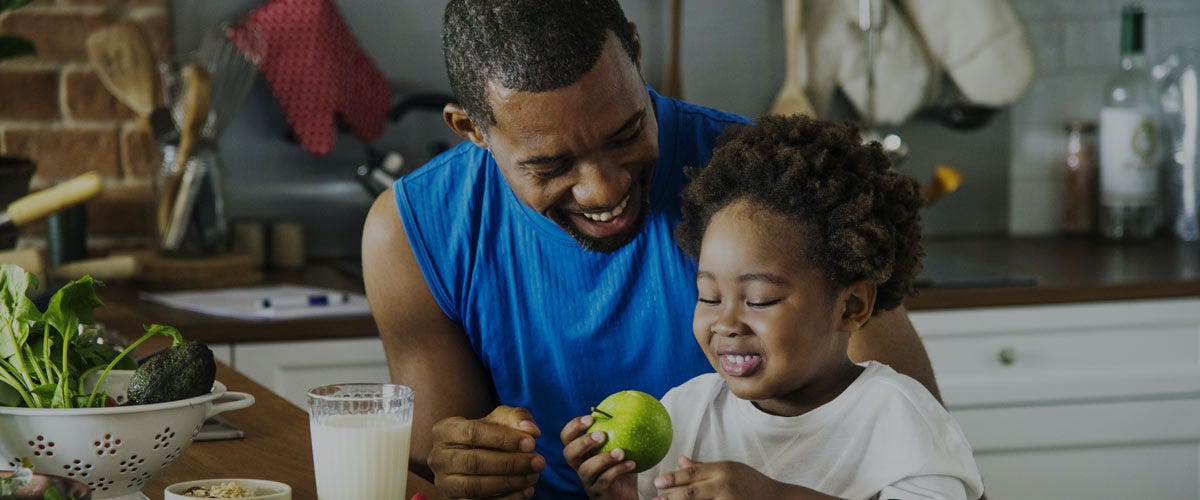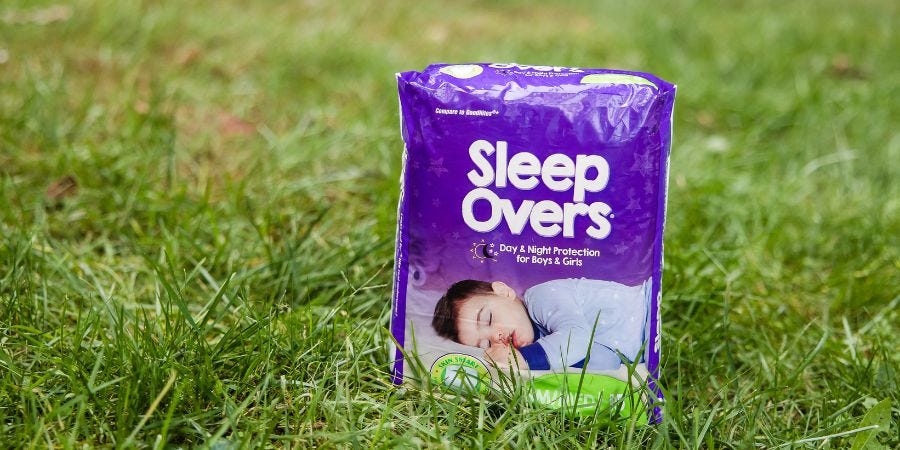You know the situation. You’re woken up to the pitter-patter of tiny feet walking across your bedroom floor. You flutter your eyelids open to see your child standing in damp pajamas at the end of your bed, looking disappointed and embarrassed. They say the dreaded words, “I had an accident.”
While this can be frustrating and disappointing for both child and parent, do you ever catch yourself wondering...why do kids wet the bed?
Read this post to learn how diet affects bedwetting and what you can do to help them manage their symptoms.
Why Do Children Wet the Bed?
The answer to why children wet the bed is both simple and complex: No one knows for sure, but we do know that various factors can play a role in why your child is suffering from bedwetting, and diet is one of them.
Some common causes include:
- Sleeping too deeply to wake up when the bladder is full.
- Urinary tract infections (UTIs).
- Concentrated urine irritating the bladder.
- Diabetes Insipitus.
- Constipation
- Stress or changes in routine.
- Genetics
- Obstructive sleep patterns.
- Surgical, anatomical, or neurological reasons.
- Consuming a highly overactive bladder diet.
Check Your Eligibility
2 Easy Steps
Diapers and pull-ons for children ages 3+ with special needs, available through Medicaid.
If you find that none of the above causes are interrupting your child’s life, it may be their diet. A highly overactive bladder diet consists of foods that irritate the bladder.
Foods That Irritate the Bladder
Some foods irritate the bladder more than others. Recognizing these foods and removing them from your child’s diet can potentially stop nocturnal enuresis from occurring.
These foods include, but are not limited to:
- Carbonated drinks and soda (even if uncaffeinated).
- Coffee and tea (even if uncaffeinated).
- Acidic fruits and juices (oranges, grapefruits, lemons, limes) and cranberries.
- Tomato-based products (sauces, juices, etc.).
- Chocolate
- Foods that contain red, blue, or purple food dyes.
- Spicy foods.
- Dairy products (milk, cheese, yogurt, sour cream, ice cream).
- Sugary foods or drinks (including “diet” drinks with aspartame).


While there is nothing wrong with any of these foods and drinks, limiting or entirely removing these foods from your child’s diet is a simple solution to stop bedwetting naturally.
Process of Elimination
If your child is experiencing bedwetting, you should limit the foods that irritate the bladder, especially after lunchtime or in the second half of the day.
Now that you know which foods to avoid, we recommend eliminating all of the above bladder-irritating foods from your child’s diet for at least 10 days. If you see improvement, this could be a sign that one or more of the foods in your child’s diet could be irritating the bladder and causing nocturnal enuresis.
After the 10-day period is over, start to reintroduce each food, one by one, every few days. Then, if symptoms return, you’ll be able to quickly identify which food(s) you should steer clear from in your child’s diet. Remember, it is essential for your child to drink plenty of water early in the day when adding these foods back into their diet.
Additional Tips
1. Drink More Fluids
Try to encourage your child to drink more fluids in the morning and afternoon rather than at night. Drinking too little liquid can lead to a buildup of toxins in your urine, which can irritate the bladder and cause nocturnal enuresis to worsen.
Children should drink approximately 1 liter of water per day, but make sure this intake is evenly distributed throughout the day to avoid bladder irritation. Remember that fluids come from foods, too! Foods like soup, fresh fruits, and cucumbers are high in water content.


2. Prevent Constipation
Constipation can cause or contribute to bedwetting. Therefore, paying close attention to your child’s bowels is recommended to ensure incomplete stool emptying is not a contributing factor to their bedwetting. This can occur for two reasons:
- The nerves to the bladder are the same as the bowels.
- Anatomical proximity. If the bowel is full of stool, it can press on the bladder and cause or contribute to bedwetting. Increase fiber and fluid intake early in the day to help with constipation. Your goal should be for your child to make at least one soft bowel movement per day.
3. Try Medications
Some medications are used to treat bedwetting. However, medications are sometimes considered "band-aids" as they treat the symptoms of bedwetting and not the underlying cause. There is a caveat should your child be bedwetting due to a hormonal or neurological abnormality. But, these medications can be effective and predictive—and many healthcare providers like to use them for "as-needed occasions—such as sleepovers, travel, camp, etc.—when we would like to ensure your child is dry.
4. Use Bedwetting Alarms
Bedwetting alarms are the gold standard treatment for bedwetting, as it treats the underlying behavioral problem and trains the brain to consistently listen to the bladder overnight. Once moisture is detected, the alarm sounds, which should encourage your child to wake up and use the bathroom.
For children that are deep sleepers, it may take a team effort. For example, the alarm may wake up parents and the dog, but not the bedwetter, so often a guardian is needed to wake their child up and escort them to the bathroom. The alarm may sound several times per night and may not sound at all—both are normal.


Restricting foods from your child’s diet may be difficult, but try to see the hope in the future. Imagine no more middle-of-the-night cleanups or worrying about accidents when your child goes for a sleepover with friends.
It’s important to remember that eliminating bedwetting doesn’t happen overnight, but removing diuretic foods and drinks from your child’s diet is one of the most accessible options in your journey to preventing bedwetting.
If your child’s nocturnal enuresis persists past age 7, we recommend visiting your healthcare provider for further steps to prevent bedwetting. Other tools such as bedwetting alarms, bedwetting medication, or diapers for children could also be helpful options for your child.
Get Free Incontinence Supplies for Your Child
If your child is managing bedwetting and has an underlying condition that relates to incontinence, they may be able to receive free incontinence supplies, such as diapers and underpads, through Medicaid or private insurance plans.
Just fill out our qualify form to see if your child is eligible! If they are, we'll send them products in discreet packaging every month.
Information provided on the Aeroflow Urology website is not intended as a substitute for medical advice or care from a healthcare professional. Aeroflow recommends consulting your healthcare provider if you are experiencing medical issues relating to incontinence.










